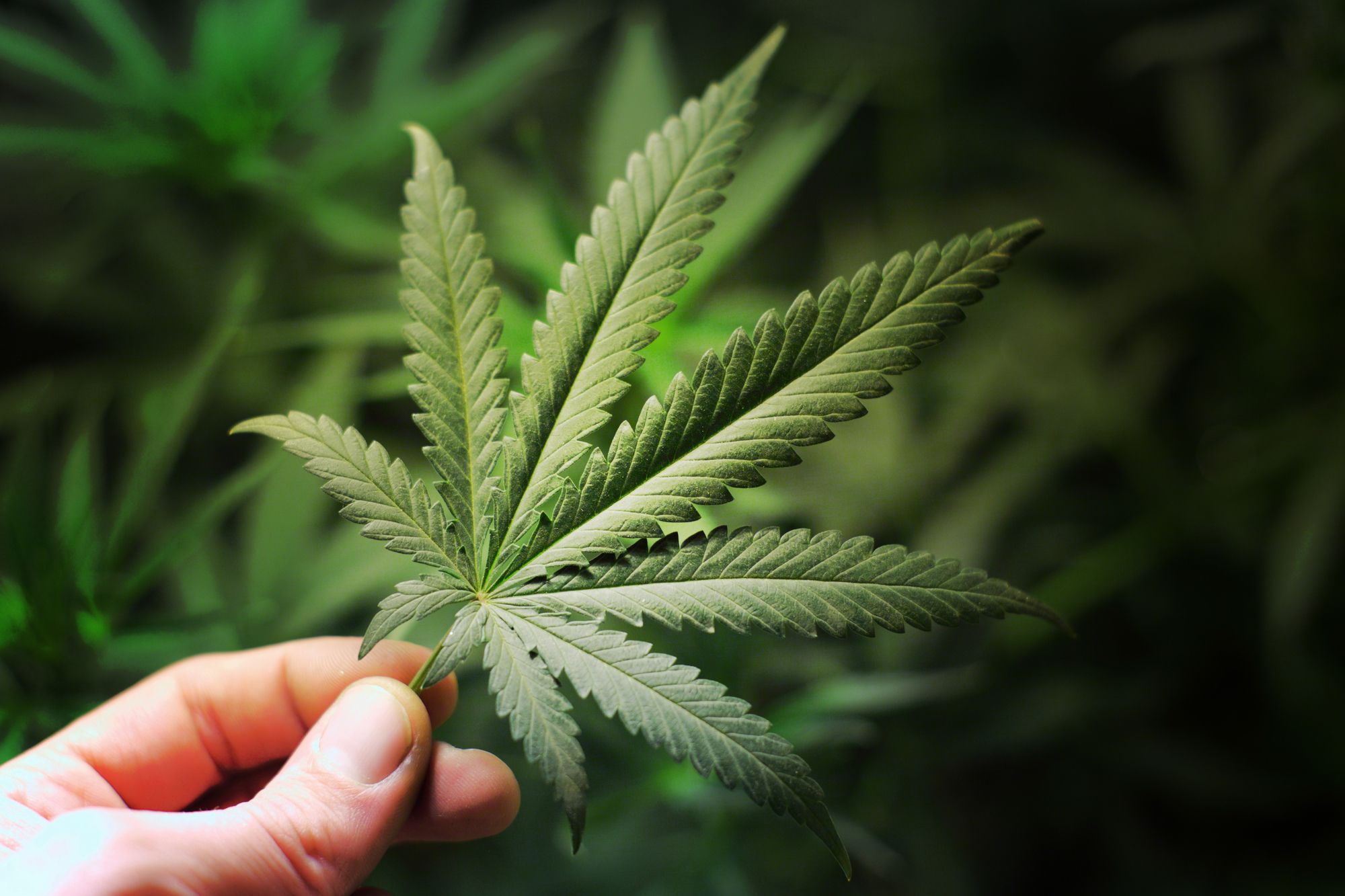

As John Mayer tells us (and tells us, and tells us), your body is a wonderland. When it comes to microbial life, this holds especially true for your gut. There, hundreds of residential species eat, breed, and excrete waste. Somehow, your intestines manage to thrive with this zoo inside them—for the most part. In some cases things aren’t so wonderful: your gut starts attacking itself in an autoimmune response that’s bad for microbes and host alike.
People with this condition, known as inflammatory bowel diseases like Crohn’s disease or ulcerative colitis, face a chronic problem. Current treatment options are laden with side effects and require constant tweaking to remain effective. Some of those people have turned to marijuana for treatment—but their stories about how it has helped them have remained just that, stories, until now. A new study from University of Massachusetts and University of Bath researchers is the first to demonstrate the physical process by which cannabis affects IBD, opening up the possibility of creating new drugs to treat these chronic ailments.
Although numerous IBD patients use cannabis products to help treat their illness, and the phenomena has been subject to some medical research, nobody knew exactly how the medically active parts of marijuana (known as cannabinoids) had an anti-inflammatory effect on irritated bowels before this study. Ironically, however, the researchers weren’t even looking for this precise answer; they just happened upon it in the course of trying to understand how the healthy intestine regulates itself.
In the gut, a thin layer of epithelial cells mediates between our bodies and the microbial “zoo” living within. Beth McCormick of the University of Massachusetts has been studying the role these cells play in regulating the gut microbiome for well over a decade, and the starting point for this current research was her prior discovery of a chemical pathway by which epithelial cells help neutrophils, a kind of white blood cell, to cross into the gut and eat up some of the microbes. But that was clearly only half of the answer. In order to produce balance, something else had to stop too many neutrophils from getting in and killing peaceful microbes and even the gut itself—leading to IBD.
The answer, reported in the new study out Monday in the Journal of Clinical Investigation, is a different pathway, also in the epithelial cells of the gut lining. That chemical pathway produces substances that prevent neutrophils from getting through the epithelial cells and into the gut. And it turns out those substances, in mice at least, are endocannabinoids. These fatty substances bind to the same chemical receptors as the cannabinoids found in, well, cannabis. Patients missing this secondary pathway “were more likely to develop ulcerative colitis,” McCormick says.
Although the current research is in mice, it points to a possible result in humans as well. It would help explain why cannabinoids seem to provide relief for people with IBD, because they perform basically the same regulatory function as the endocannabinoids would if the body were producing them itself. More research, of course, is needed, but McCormick says it opens up the possibility of creating new IBD treatments that work on the new pathway—including, perhaps, therapeutic agents extracted from marijuana.
And that’s not all, says Vanderbilt University gastroenterologist Richard Peek, who wasn’t involved in the new study. McCormick’s findings “may not just be specific to the intestine,” Peek says. Epithelial cells are found on the surfaces of organs throughout the body, so this mechanism of action may exist in other systems as well, he says. That would change our understanding of autoimmune responses elsewhere in the body, too.
This is good news for the 1.6 million Americans who currently have IBD. But given how common a treatment cannabis is for IBD, some might ask why researchers didn’t look for its mechanism of action in the gut before. That’s partially because cannabis research tends to be politicized, says Peek. He thinks that this discovery may open up new possibilities for the legalization of medical marijuana. For McCormick, their “unbiased approach” was the key to finding this result: they weren’t looking to explain cannabis’s mechanism of action, they just found it. “Sometimes, as they say in the field, the blind squirrel finds the nut,” she says.
